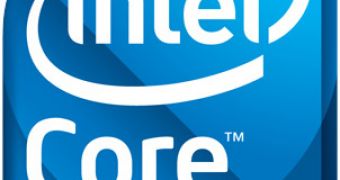Granted you've been keeping up to date with the latest developments in the IT industry, you must know that Intel's Developer Forum is scheduled to begin today. It is then that we will learn more of several of the company's chip products and upcoming technologies, including the Core i7 processors and the graphics chip codenamed Larrabee.
This event has been extensively covered in the media, especially since rumors have it that the Santa Clara-based chip maker will be officially unveiling its Nehalem processors on the occasion. According to a recent post on the EE Times website, Intel will use its annual developer forum event in San Francisco to shed some light on the upcoming Core i7 processors and the Nehalem architecture. Also, a number of details regarding the company's current and future technologies will presumably be revealed, which means we have all the more reasons to keep a close eye on the event.
According to the aforementioned article, Intel will be releasing details about an x86-based processor designed for consumer electronics systems such as set-top boxes. The chip will be part of the company's venture into multicore SOC (system-on-chip) designs for a range of computer and embedded markets. Furthermore, we should also be expecting some details on solid-state drives, including specs and benchmarks, and possibly even a product release, but that is yet to be confirmed in the upcoming days.
As some of you already know, Intel is set to enter the discrete graphics market by sometime in 2010, once its highly anticipated Larrabee chip is released. This is the reason why people are waiting for more details on the upcoming chip, and they are likely to get more at this year's IDF event. Also there, Intel is likely to talk about DDR3 and its first quad-core notebook processors as well.
As a response to the high number of technologies and products Intel is believed to discuss once IDF begins, rival AMD has pointed out that most of the advances in Intel's new Nehalem line - "including an integrated memory controller and a cache coherent interconnect" - are almost the same with its own CPU architecture, which the company has been delivering for quite some time now.
"Intel will try to portray themselves as a juggernaut of innovations, but really they are copying many advances AMD made years ago," said Randy Allen, senior vice president of AMD's computing group. "Intel will compare their future products with our current ones, but they will neglect to factor in that we will be releasing our [45nm] Shanghai processor by the end of the year," he added.

 14 DAY TRIAL //
14 DAY TRIAL //